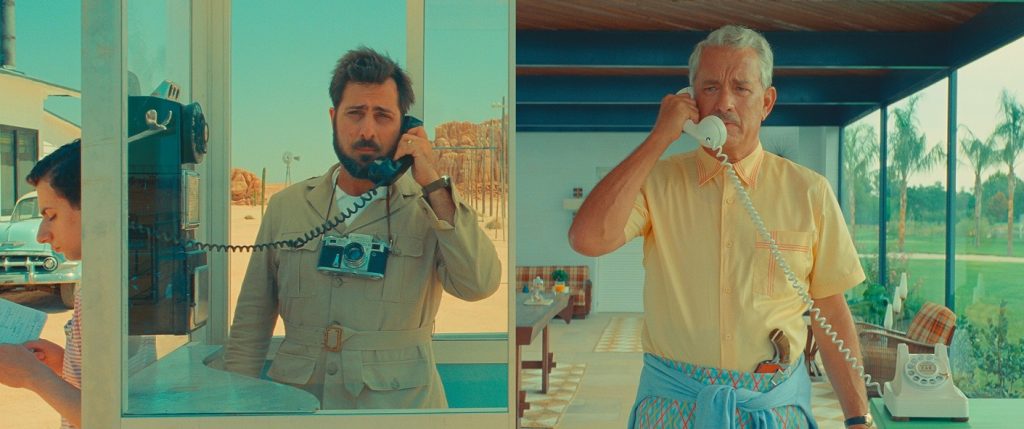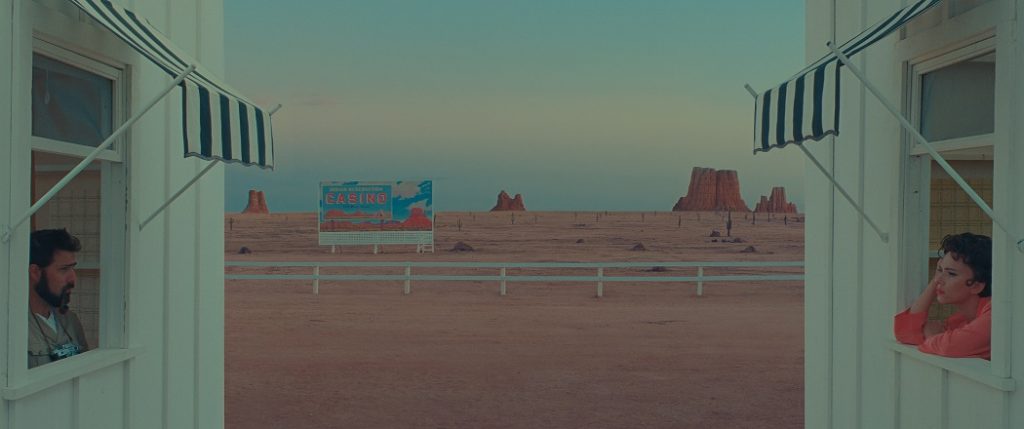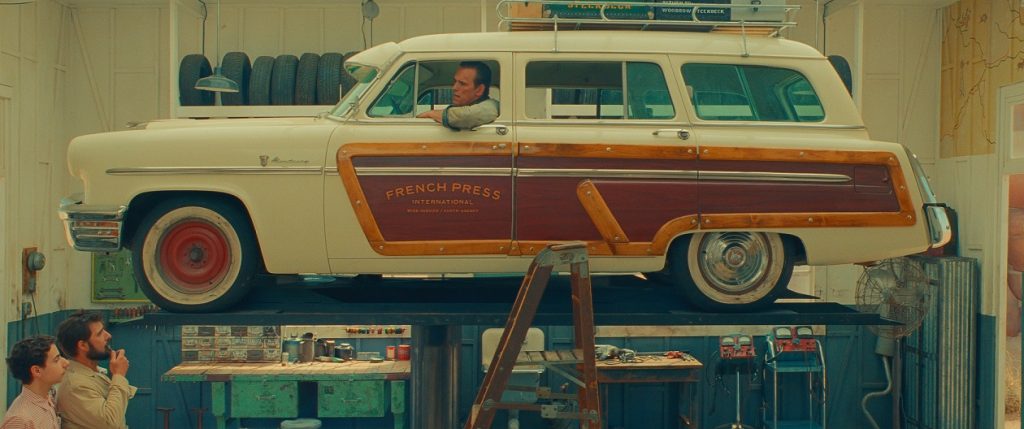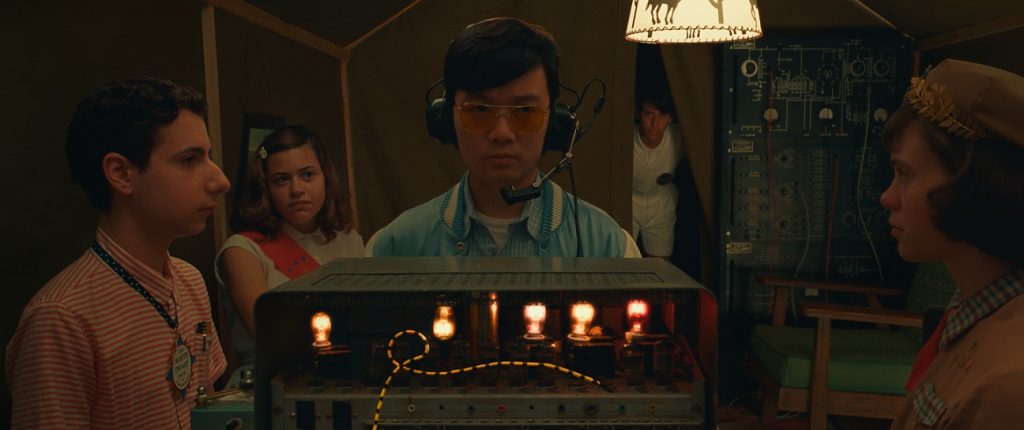
Running Time: 104 minutes
This movie from Focus Features opens exclusively in cinemas on Friday, June 23rd.
Writer/director Wes Anderson has been making eccentric and visually striking movies for a great many years now. The personal quirks present in his projects are so distinctive that just about everyone has a strong opinion about him. This reviewer met a random performer in the city this week. After mentioning that I attended a recent press screening of Asteroid City, the individual felt compelled to tell me why he wasn’t fond of the artist’s work. This rarely happens when you casually mention a movie director to a stranger. On the off-chance Anderson might be reading this, he should take pride in the fact that his work is very recognizable to the public and always garners a passionate reaction. His latest project is no exception. It’s another film that will infuriate some viewers and fascinate others.

The complicated narrative of Asteroid City actually involves the performance of a play. To simplify, the period film cuts between a presentation of the actual dramatization written by Conrad Earp (Edward Norton) and behind-the-scenes moments with the cast and director putting the show together. The play involves photographer Augie Steenbeck (Jason Schwartzman) arriving in the title locale with his daughters and son, Woodrow (Jake Ryan). Woodrow has won a Junior Stargazer award for a science project and is collecting a prize with other gifted youngsters. Augie is soon forced to share bad news with the family and announces his estranged father-in-law Stanley Zak (Tom Hanks) is coming to help decide on their next steps. The father also befriends actress Midge Campbell (Scarlett Johansson), whose daughter Dinah (Grace Edwards) is another prize winner. After a very strange event occurs at the site and the town is quarantined by the military, the adults and kids have time to share their troubled pasts.

As with a few other titles from the director, there is perhaps too much going on, with a massive cast of supporting characters present both in the play, as well as behind-the-scenes. The plot uses humor to deal with characters being trapped together and facing issues like loss, grief and how to move forward in life, as well as what everything around them might mean. However, neither play or film appears to explicitly state its point to the audience. In fact, one subplot involves the star trying to figure out the purpose of the play and whether his performance is worthy of the material. The movie also makes a few amusing references to our dreams and subconscious and what it might be telling us during trying times.
Frankly, on first viewing this reviewer isn’t sure that he picked up all of the nuances. It’s certainly clear that this vagueness, the artificial sets and the characters’ bizarre behavior will frustrate many. However, the unnatural backdrops are absolutely gorgeous to behold. The desert town is a brightly colored wonder with hilariously strange details (from the motel’s row of vending machines, to its cabins, as well as an unfinished road that looms over the town), all of which consistently impress. Simply put, the colorful production design and cinematography is jaw-dropping.

And the impressive cast delivers plenty of humor. Schwartzman is effective in the lead role and his deadpan delivery is wonderful. In particular, the way Augie bluntly delivers bad news to his kids, along with his interactions with Midge. Johansson also stands out alongside Schwartzman, adding some humanity and relatable qualities in an otherwise exaggerated world. Not all of the peculiarities on display earn laughs, but there is plenty of great supporting work. The town mechanic (Matt Dillon) has a hysterical gag involving a car repair, while motel owner (Steve Carrell) gets a chuckle delivering teenagers news to a family checking in. Additionally, there are entertaining moments with the teens and their bizarre projects, as well as their interactions with a local scientist (Tilda Swinton).

Admittedly, the end product doesn’t quite reach the remarkable heights of a few of Anderson’s previous works (this reviewer’s personal favorites include The Grand Budapest Hotel, Moonrise Kingdom, The Royal Tenenbaums and Rushmore). But even if it feels a little overstuffed and the ultimate purpose of the play and movie might not fully come to light during its first viewing, there is plenty to enjoy, ponder and eventually reexamine. It also delivers a completely original vision and stands apart from the majority of studio releases. If you dislike Anderson’s work, then this effort will incense you and you’ll be complaining to me about it on the street. However, those who admire the filmmaker will find Asteroid City worth visiting.


